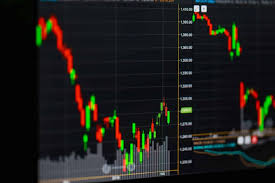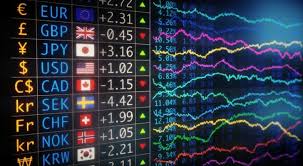
Forex Trading for Beginners: A Comprehensive Guide
Forex trading can seem like a daunting field for beginners. However, with the right approach, you can navigate this landscape successfully. It’s essential to understand the basics, develop a trading strategy, and learn about risk management. You can find many resources online, such as forex trading beginners https://trading-bd.com/, to get started on your forex trading journey.
What is Forex Trading?
Forex, short for foreign exchange, is the global market for trading national currencies against one another. This market is the largest and most liquid financial market in the world, with trillions of dollars exchanged daily. The fundamental concept behind forex trading is buying one currency while simultaneously selling another, often referred to in pairs (e.g., EUR/USD, GBP/JPY).
Why Trade Forex?
Forex trading offers several advantages, especially for beginners:
- Liquidity: The forex market is open 24 hours a day, allowing traders to buy and sell currencies at any time. This constant activity results in high liquidity, which means you can enter and exit trades quickly with minimal slippage.
- Leverage: Many brokers offer leverage, allowing you to control larger positions with a smaller amount of capital. However, leverage also increases risk, which beginners must understand thoroughly.
- Accessibility: With the rise of online trading platforms, anyone with an internet connection can access forex trading. Many brokers offer demo accounts that allow beginners to practice trading without risking real money.
Understanding Currency Pairs
Currencies are quoted in pairs, where the first currency is the base currency and the second is the quote currency. For example, in the currency pair EUR/USD, the euro is the base currency and the US dollar is the quote currency. The value of the pair indicates how much of the quote currency is needed to buy one unit of the base currency.
Major Currency Pairs
The most traded currency pairs are known as the major pairs, which include:

- EUR/USD: Euro and US Dollar
- USD/JPY: US Dollar and Japanese Yen
- GBP/USD: British Pound and US Dollar
- USD/CHF: US Dollar and Swiss Franc
The Importance of a Trading Plan
Before diving into forex trading, it’s crucial to develop a comprehensive trading plan. A well-structured plan outlines your trading goals, risk tolerance, entry and exit strategies, and the tools you’ll use for analysis. Your trading plan should be flexible and allow for adjustments as you gain more experience and knowledge.
Risk Management Strategies
Risk management is a critical aspect of trading, especially for beginners. It helps protect your capital and minimize losses. Here are some key components of risk management:
- Use Stop-Loss Orders: Stop-loss orders automatically close a position when it reaches a certain loss level. This helps to limit your losses and protect your account from significant drawdowns.
- Position Sizing: Determine how much of your total capital you’re willing to risk on a single trade. A common rule of thumb is to risk no more than 1-2% of your trading capital on any one trade.
- Diversification: Spread your investments across multiple currency pairs rather than concentrating on one. Diversification can help minimize risk since not all currency pairs react the same way to market events.
Technical and Fundamental Analysis
To make informed trading decisions, beginners must learn about technical and fundamental analysis. Understanding both types of analysis will provide a broader perspective on market movements.
Technical Analysis
Technical analysis involves studying price charts and utilizing indicators to predict future price movements. Key elements include:
- Support and Resistance Levels: Identifying price levels where the market tends to reverse or consolidate can help traders make informed decisions on entry and exit points.
- Chart Patterns: Patterns such as head and shoulders, double tops, and triangles can indicate potential price movements.
- Indicators: Tools like moving averages, Relative Strength Index (RSI), and MACD can offer insights into market trends and momentum.

Fundamental Analysis
Fundamental analysis involves evaluating economic indicators, political events, and market news to assess the underlying value of currencies. Important factors include:
- Economic Indicators: Data such as GDP, employment rates, and inflation can significantly impact currency values.
- Central Bank Policies: Actions and announcements from central banks (e.g., interest rate changes) play a crucial role in influencing currency movements.
- Geopolitical Events: Political stability, trade agreements, and international relations can affect market sentiment and currency value.
Choosing a Forex Broker
Selecting the right forex broker is vital for your trading success. Key factors to consider include:
- Regulation: Ensure the broker is regulated by a reputable authority, which helps protect your funds and ensure fair trading practices.
- Trading Platform: A user-friendly and reliable trading platform can enhance your trading experience.
- Spreads and Commissions: Compare the costs associated with trading different brokers to find one that fits your budget.
Continuous Learning and Improvement
Forex trading is a continuous learning process. As a beginner, focus on developing your skills and knowledge:
- Demo Trading: Use a demo account to practice trading without risking real money. This allows you to develop your strategy and become comfortable with the trading platform.
- Education: Take advantage of online courses, webinars, and books to further your knowledge about forex trading.
- Join a Trading Community: Engaging with other traders can provide valuable insights and support as you navigate your trading journey.
Conclusion
Forex trading can offer opportunities for profit and financial freedom, but it requires dedication, education, and practice. As a beginner, take your time to learn the fundamentals, develop a robust trading strategy, and establish effective risk management practices. Remember that success in forex trading comes with experience, so be patient and persistent as you embark on your forex trading journey.

COMMENTAIRES